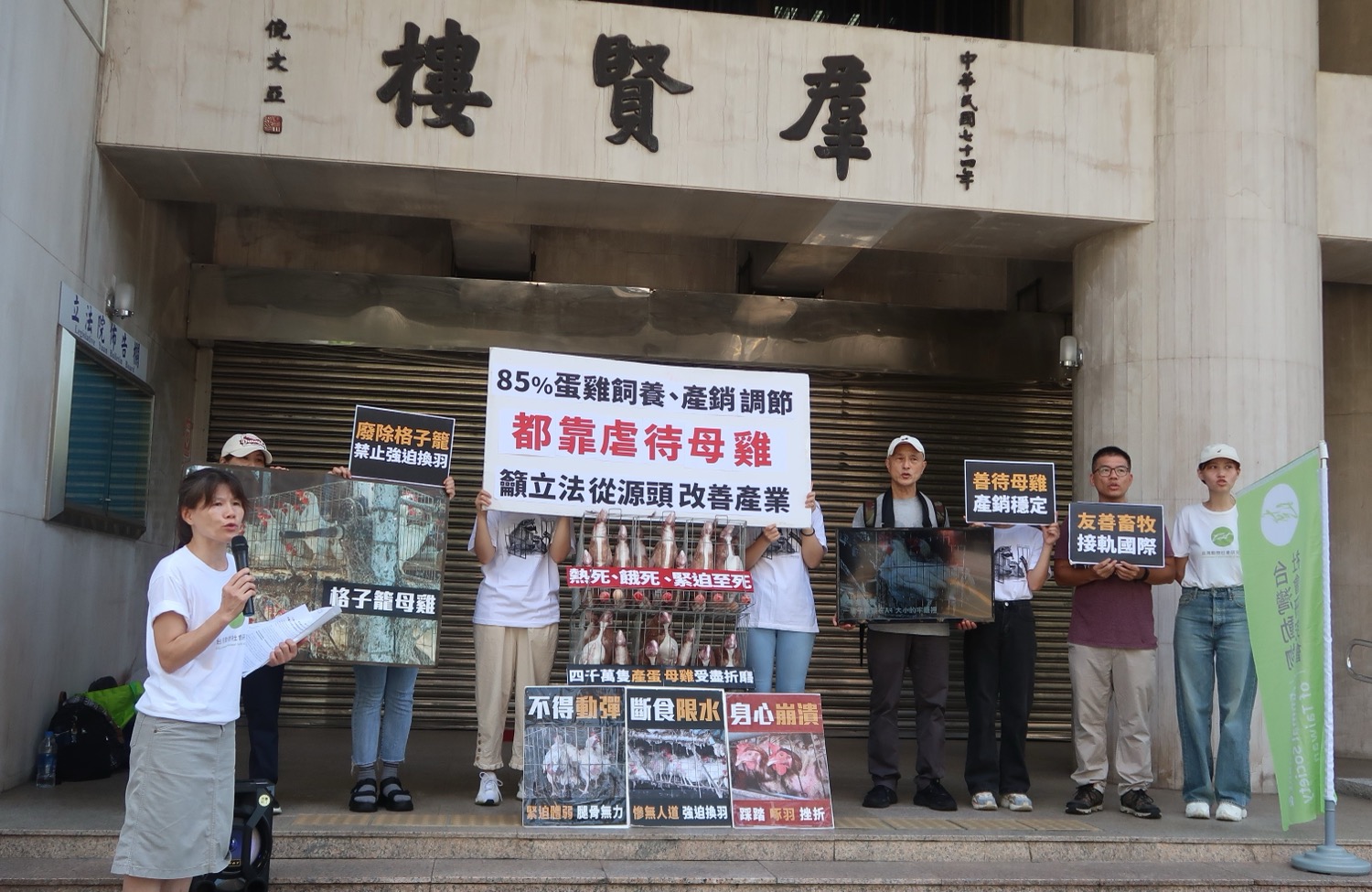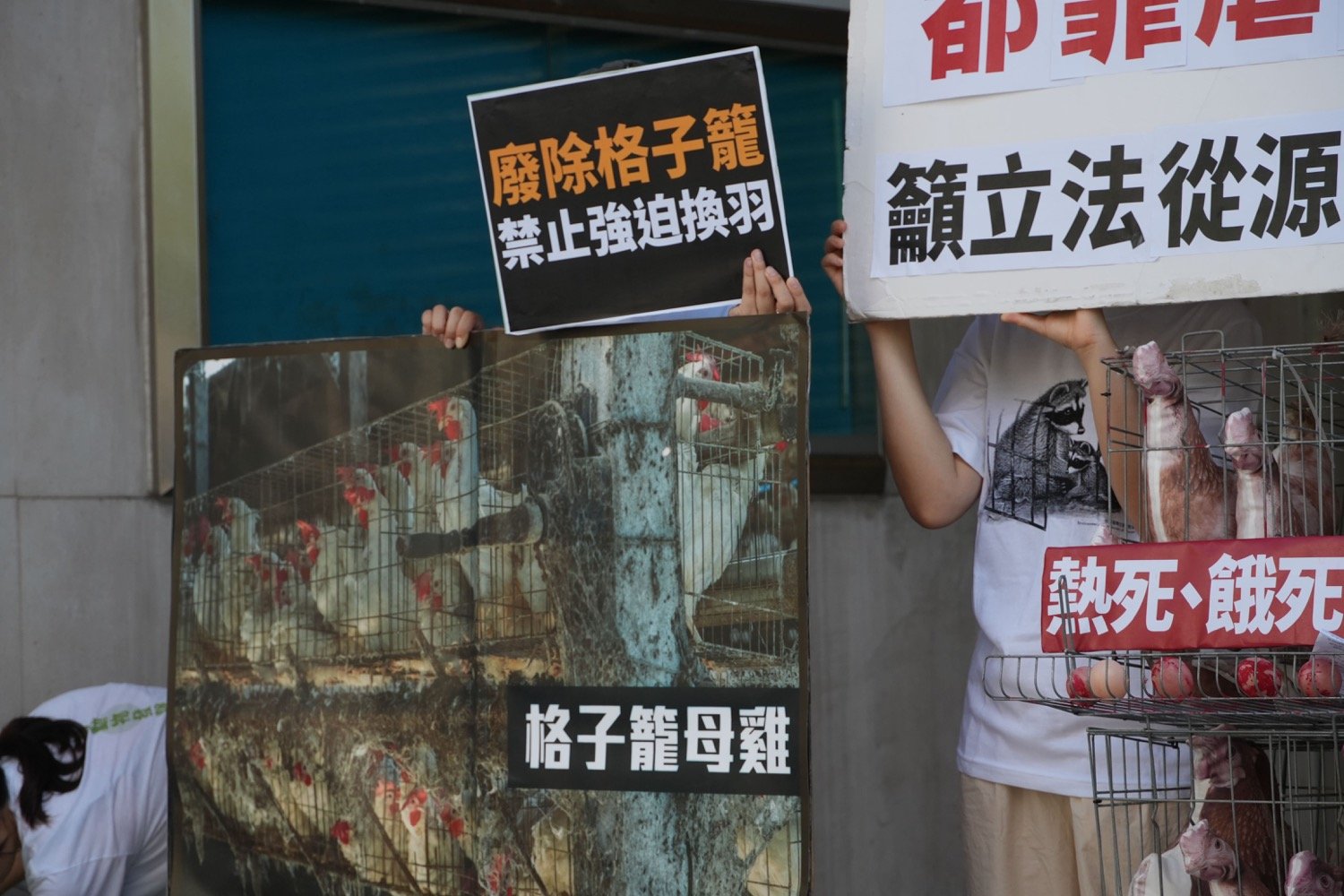EAST launches a protest at the Legislative Yuan against laying hens' extreme living conditions
Following last year’s egg shortage, the government encouraged local farmers to exploit their hens using inhumane methods, and egg imports. These urgent measures resulted in difficulties controlling egg quality , as well as market competition, hence these measures have been widely denounced. Consequently, the Economic Committee of the Legislative Yuan held a meeting today (July 11) to establish a “Task Force for Investigating Imported Eggs.”
The Environment & Animal Society of Taiwan (EAST), simultaneously held a press conference outside the venue to address the suffering of nearly 40 million laying hens in Taiwan. They urged legislators to recognize the cruel and outdated practices in Taiwan's egg industry, where 80% of egg-laying hens are subjected to abusive conditions. EAST called for prompt legislative action to fundamentally improve the industry.
Traditional "battery cage" farming confines two to four hens in a cage about the size of an A4 sheet of paper. These living conditions not only cause both physical and mental suffering to the hens but also lead to an alarming number of hens dying from heat stress in the summer and extreme cold in the winter. Despite these issues, the government has been passive and ineffective in addressing the industry’s inhumane practices.
More outrageously, the Ministry of Agriculture uses “delaying or accelerating the culling of hens” as a means to adjust supply and demand imbalances. Last year, when the egg shortage occurred, the Ministry openly encouraged egg farmers to force molting by starving and dehydrating the hens to increase their egg production, while this year, the Ministry has spent millions to accelerate the culling of low-yield hens, leading to poor slaughter conditions and the needless suffering of hens in extreme heat.
During the egg shortage at the beginning of last year, 2.6 million hens were subjected to forced molting in February alone, more than double the usual amount.
Taiwan’s egg production index is only 52%, significantly lower than countries like Spain and Italy, which have similar populations and GDP but maintain production rates around 80%. For the past 30 years, the Ministry of Agriculture has openly encouraged practices like forced molting and the premature culling of hens to manage supply and demand, effectively legitimizing animal abuse. On average, 1.2 million hens are subjected to forced molting each month, with nearly 15 million hens suffering from starvation and dehydration annually.
EAST urges the Economic Committee of the Legislative Yuan to demand that the Ministry of Agriculture cease abusive practices like forced molting and the use of subsidize for the culling of hens. Taiwan should follow the example of the EU, New Zealand, and India by legislating a ban on forced molting. Additionally, proactive legislation is needed to drive the transformation of towards more humane practices for farmed animals, aligning with international standards. This includes setting a timeline for phasing out battery cages, thereby improving the conditions for laying hens and stabilizing supply and demand from the source.












